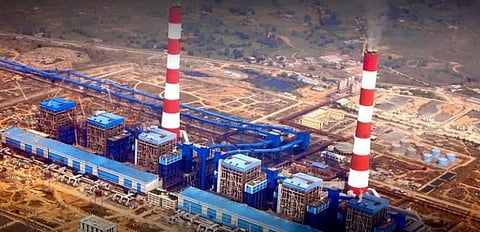

The Central Electricity Regulatory Commission (CERC) approved Rs 1,663 crore in principle on April 23, 2020, for the construction of a flue-gas desulphurisation (FGD) device at Reliance Sasan’s plant in Singrauli, Madhya Pradesh, to comply with new environmental standards.
The flue-gas desulphurisation system is an essential device for reducing air pollution and meeting new environmental standards.
This approval means that the company can recover this amount of Rs 1,663 crore from its customers through tariff hikes. This, in-turn, helps them to secure a loan from the banks, as it acts as a promise of definite recovery of the money paid to build this device.
The company had approached CERC in 2016, asking for the in-principle approval of this cost.
However, after a thorough analysis of the petition in October 2018, CERC asked the company to implement the standards and then come to them with actual costs for approval.
They also recommended the plant to take advice on costs and other technical aspects for implementation from the Central Electricity Authority (CEA), a technical analysis and a policy research body under the Union Ministry of Power.
The station approached CEA and received a detailed advisory note within six months. Reliance Sasan then conducted an international bidding and reached an agreement with a Chinese company to build the unit.
However, the bank loan was refused until they submitted a provisional approval of the costs to the regulator. The plant, therefore, approached the CERC again this year.
The discoms (distribution companies) that supply power to consumers, strongly opposed this petition, stating that the matter had already been closed by the CERC.
However, CERC approved the costs saying the power station had followed its earlier direction also the costs submitted by the plant matched with what had been advised by the CEA.
It also noted that the deployment of the FGD system in thermal power stations was being supervised by the Supreme Court.
Any further delay in obtaining a loan from financial institutions was likely to postpone the implementation of the construction of the FGD system further. It was therefore advisable to allow some portion at this juncture.
Rs 1,663 crore, provisionally approved, will be spent on the construction of the FGD system.
Additional costs — interest on loans during construction, expenditure on project management after commissioning, operation and maintenance of the system, compensation towards any reduction in generation during construction of the plant due to forced shutdown, and other marginal costs will be determined after the actual expenditure is made said CERC in its order.
The CERC also directed its staff to publish a discussion paper about what kind of price hike mechanism can be used to recover such costs from customers.
The current power purchase agreement referred to in Clause 13.2(a) provides for the monthly reimbursement of expenditures, although the mechanism is not predefined. This mechanism has to be developed at the earliest as there are many similar cases in the pipeline.
“The financial closure of the project will take place in another 2-3 months. Post-the actual project, work will begin. Reliance Power, amid the (COVID-19) pandemic scenario, is working closely to comply with the environmental regulations,” the company said.
Reliance Sasan operates six units with a capacity of 3,960 megawatt. Three units — unit 1, 2 and 5 will comply with the new environmental requirements by 2021 and the remaining by 2022.
The plant supplies the cheapest electricity in the country to 47 crore consumers in the seven states of Madhya Pradesh, Uttar Pradesh, Punjab, Haryana, Rajasthan, Delhi and Uttarakhand.
Still, there have been accidents leading to pollution. A few months ago, there was an ash pond break in the plant that led to the death of three men.